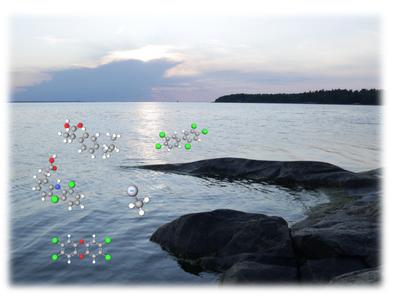The environmental toxicology course is a broad course, which spans from molecules to ecosystems. The course consists of an application of the bio program’s basic chemical and biochemical knowledge in an environmental toxicological context. The course gives an understanding for how xenobiotics (substances or materials unknown to the cell/organism) can influence humanity and the environment; consequently, animals and plants.
Among natural life processes, there are inherently, potentially dangerous processes and molecules which can be abused if the protection around them is disturbed. For example, the activation of oxygen which results in reactive oxygen compounds like free radicals. The activation of programmed cell death at the wrong time is another example. Water-soluble and fat-soluble are central molecular properties which become significant in a new respect.
Heredity is not only the sequence of DNA-bases; but also the power to make use of those sequences that are hereditary, but with another hereditary mechanism (epigenetics), which can be affected by the environment.
Important knowledge which is mediated is that organisms’ biochemical/physiological control systems are sensitive to xenobiotics, and interferences result in extensive, increasing, and often long-term harmful effects on gene activity, cell differentiation, embryo development, reproduction, and behaviour. The student becomes aware of those connections and develops sensitivity for environmental toxicology problems. Risk assessment and regulations are discussed in the course.
An overall goal is that the student in his/her own future occupation as an engineer will avoid including environmental toxicology problems in products and processes, but also, in the early stages identify problems if they come up, and try to find environmentally friendly alternatives.
Other parts of the course include independent achievements regarding environmentally toxicological problems.
